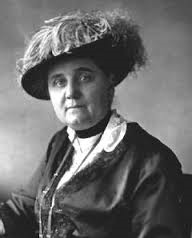Jane Addams
Contents
Country
United States
Birth - Death
1860 - 1935
Occupation
Activist
Notable Achievements
Nobel Prize
Description
As a social reformer, peace activist, and women’s rights advocate, Jane Addams led the beginning efforts to establish social welfare programs around the world. The results were so impressive that they remain the inspiration for many such programs today, both at the small community level and the larger national government levels. She was honoured in 1931 for her efforts when she was awarded the first Nobel Prize given to an American woman.
Born into a relatively wealthy family, Jane Addams lost several of her siblings and her mother to disease at a very early age. She, too, almost died from tuberculosis at the age of four, and the effects would complicate her for the rest of her life. These experiences encouraged Jane Addams in her youth to aim to achieve great things in her life for the social betterment of society. This inclination was furthered by her academic studies to be a doctor, though her back problems prevented her from graduating.
In 1887, Addams travelled to London, England to view a new concept in aiding the poor working classes and immigrants, the settlement houses. She travelled with her romantic partner of the time, Ellen Gates Starr. On their return, the two founded in 1889 a similar institution in Chicago and called it Hull House.
The purpose of Hull House was to provide counseling, education, training, accommodation, meals, medical services, cultural programs, and more to the disadvantaged population as a means for them to attain a better life. Within a matter of months over 2,000 such individuals per day were visiting the institution. Addams ensured that particular attention was paid to disadvantaged children, a reflection of her personal challenges at a young age.
Addams was a committed pacifist throughout her life and actively lobbied against U.S. participation in The Great War. She also became an activist for the advancement of women’s rights, believing that the principal source of poverty and economic disadvantage was sourced in the absence of the participation of women in government, business, and other aspects of life. She continued to advocate this through numerous economic disasters around the world.
Hull House and the efforts of Jane Addams soon grew in international fame. Within a few years of its establishment, for example, various churches around the world took up the active cause of servicing the needs of the underprivileged. In addition, Presidents Theodore Roosevelt and Woodrow Wilson of the United States used its success in creating their national government programs for the poor and unemployed during the Great Depression. Hull House itself grew quickly to encompass a total of 13 buildings.
Jane Addams argues in her autobiography Twenty Years at Hull House (1910) that her most notable success was the creation of an outlet for women to participate and exhibit their personal and unique strengths in addressing the economic needs of the poor. She published many books and social commentary on the subject.
Her efforts were duly rewarded when she became the first American woman to win the Nobel Prize in 1931. Other awards were presented to her during her lifetime and posthumously. She entered the Gay & Lesbian Hall of Fame in 2008.
Despite her conservative approach to her same-sex attractions, Addams’ voluminous correspondence confirms her early intimate relationship with Ellen Starr. This was followed by an equally romantic relationship with Mary Roget Smith with whom she lived from 1900 until her death. Nevertheless, many commentators over the years have downplayed her sexual orientation. She may not have publicly identified as a lesbian (as that notion was in its infancy during her lifetime) but her loving relationship to these women is unquestionable.
Is it relevant to know the sexual attraction of women to understand and assess their behaviour, concern, and contribution toward the welfare of the disadvantaged in society? Like any individual, the emotional support system available and used by an individual goes a long way to assessing their characteristics and motivations in life, whether that individual be homosexual or heterosexual. Why deny its relevance when it comes to the homosexual. It simply verifies the social aspects of humans themselves.

